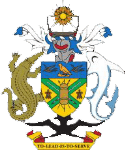Effective Early Warning Systems (EWS) require strong technical basics and good knowledge of the risks. But they must be strongly “people centred” with clear messages, dissemination systems that can reach those that are most at risk, and practiced and knowledgeable responses by those responsible for risk management and the public.
In this regard, public awareness and education are critical. Additionally, an effective Early Warning System needs the involvement and concerted effort of many sectors. Effective Early Warning Systems must be embedded in an understandable manner must be relevant to the communities which it aims to protect.
Early Warning Systems compose of four phases:
-
Monitoring of precursors
-
Forecasting of probable event
-
Issuance of a warning or an alert when event of catastrophic proportions takes place.
-
Commencement of response activities by responsible authorities and partners once a warning is issued.
The Solomon Islands Meteorological Services (SIMS) is mainly responsible for the first three phases of an Early Warning System (EWS).
Through its various manned weather stations and automatic weather stations that are located throughout the country and through cooperation with local and international partners, SIMS is able to monitor soil, air (climate) and oceanic data, including temperature and rainfall changes as well as changes in wind speed, to keep track of trends and variances across these sectors.
This data is then assessed in accordance with the Division’s Standard Operating Procedures (SOPs) for precursors indicating a probable event. If the indicators are strong enough, forecasting of a probable event is commenced, leading to the issuance of an alert of an imminent event of catastrophic proportions.
Once such an alert is issued, responsible authorities such as the National Disaster Management Office (NDMO) are notified of the Meteorological Services’ findings and disaster response activities are put into action in accordance with the National Disaster Risk Management Plan 2010 arrangements for disaster response.
SIMS is also involved in activities that encourage traditional Solomon Islands knowledge of disaster precursors as an alternative means of an Early Warning System (EWS).
Under a project called the Traditional Knowledge Project, SIMS works alongside communities to gather traditional knowledge used by Solomon Islanders for hundreds, or maybe even, thousands of years to forecast the arrival of disaster events.

